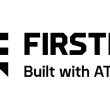Mississippi showcases deployment to halt prison cell-phone use
Officials from the FCC and multiple state-corrections departments today attended a demonstration event highlighting the first deployed managed-access system in the U.S., which is being used by the state of Mississippi is using to combat contraband cell-phone use by prison inmates.
Contraband cell phones have been a problem for corrections facilities nationwide, with prisoners using the devices to engage in criminal activities despite being incarcerated. With Tecore Networks’ Intelligent Network Access Controller (iNAC) managed-access system, all calls from a designated coverage area — in this case the inmate housing units in the Mississippi State Penitentiary in Parchman, Miss. — go to a single tower, but only communications from authorized devices are allowed to be completed.
In the first 29 days of deployment at the facility, the system thwarted 216,320 communications attempts, according to Tecore Networks COO Bruce Portell.
“The [contraband device] hardware basically becomes a paperweight,” Portell said.
Inmates’ inability to call using contraband cell phones is expected to result in more inmate calls over the corrections facility’s monitored wireline phone system. Indeed, technology provider Global Tel-Link reported a 22% increase in attempted wireline calls and a 16% increase in revenue for the month since the managed-access system was deployed.
Jamie Barnett, chief of the FCC’s public safety and homeland security bureau, was among those present at today’s demonstration. Prior to the event, Barnett expressed optimism about the role that managed-access system could play to help stop the problem of contraband cell-phone use in corrections facilities.
“I really think this may be the answer to beating cell phones in prisons,” Barnett said. “It just renders [contraband cellular devices] useless to whoever’s trying to use it. And it still put through 911 calls, and it doesn’t interfere.”
To date, most U.S. corrections facilities have used detection systems in an effort to identify and remove contraband devices from the inmate populations, but many prison officials have said the process is too labor intensive and does not prevent calls from being made. Some corrections facilities have proposed jamming technologies to prevent cell-phone calls, but such jamming currently is illegal in the United States.

















